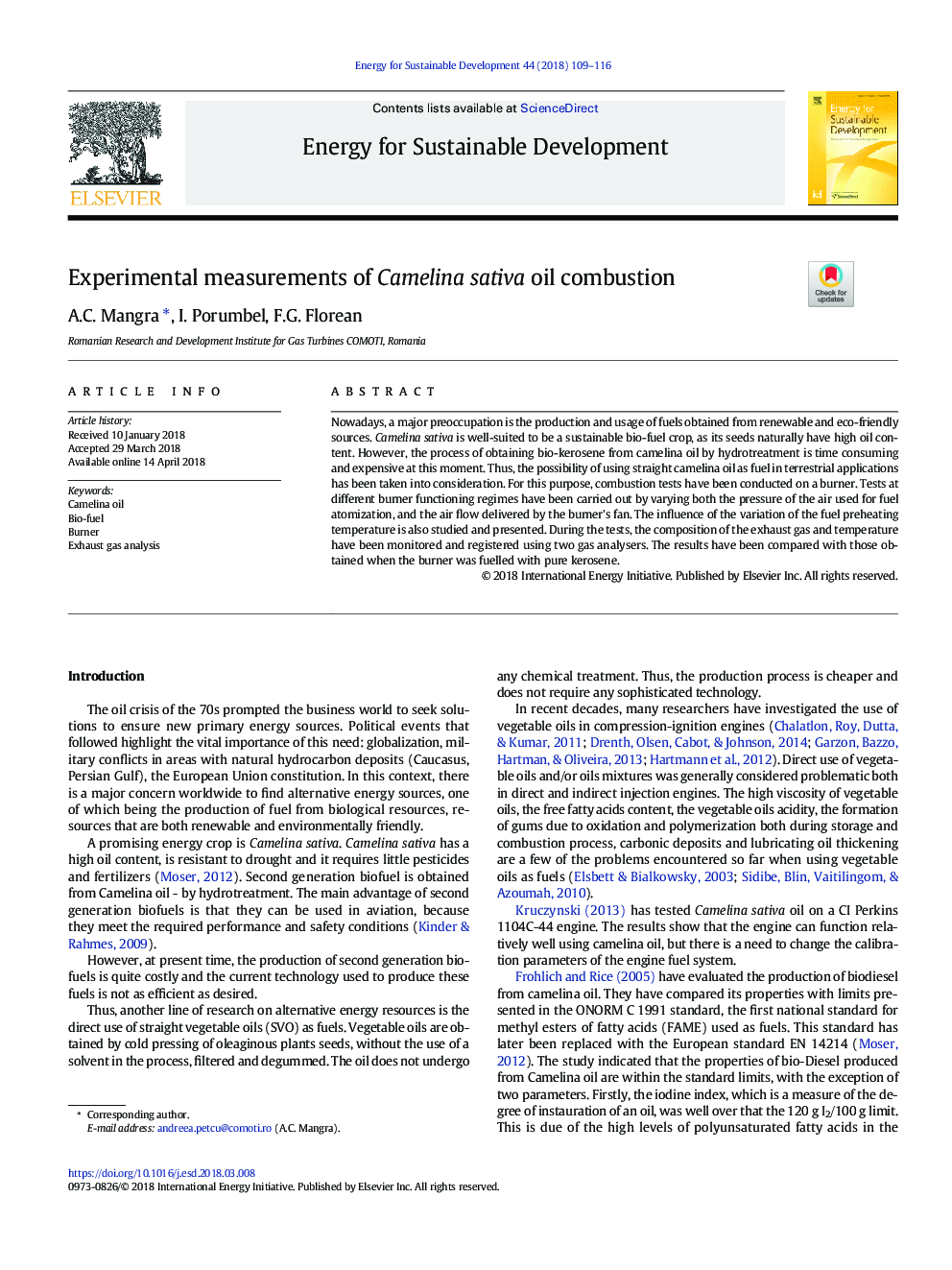| Article ID | Journal | Published Year | Pages | File Type |
|---|---|---|---|---|
| 7453572 | Energy for Sustainable Development | 2018 | 8 Pages |
Abstract
Nowadays, a major preoccupation is the production and usage of fuels obtained from renewable and eco-friendly sources. Camelina sativa is well-suited to be a sustainable bio-fuel crop, as its seeds naturally have high oil content. However, the process of obtaining bio-kerosene from camelina oil by hydrotreatment is time consuming and expensive at this moment. Thus, the possibility of using straight camelina oil as fuel in terrestrial applications has been taken into consideration. For this purpose, combustion tests have been conducted on a burner. Tests at different burner functioning regimes have been carried out by varying both the pressure of the air used for fuel atomization, and the air flow delivered by the burner's fan. The influence of the variation of the fuel preheating temperature is also studied and presented. During the tests, the composition of the exhaust gas and temperature have been monitored and registered using two gas analysers. The results have been compared with those obtained when the burner was fuelled with pure kerosene.
Keywords
Related Topics
Physical Sciences and Engineering
Energy
Energy (General)
Authors
A.C. Mangra, I. Porumbel, F.G. Florean,
